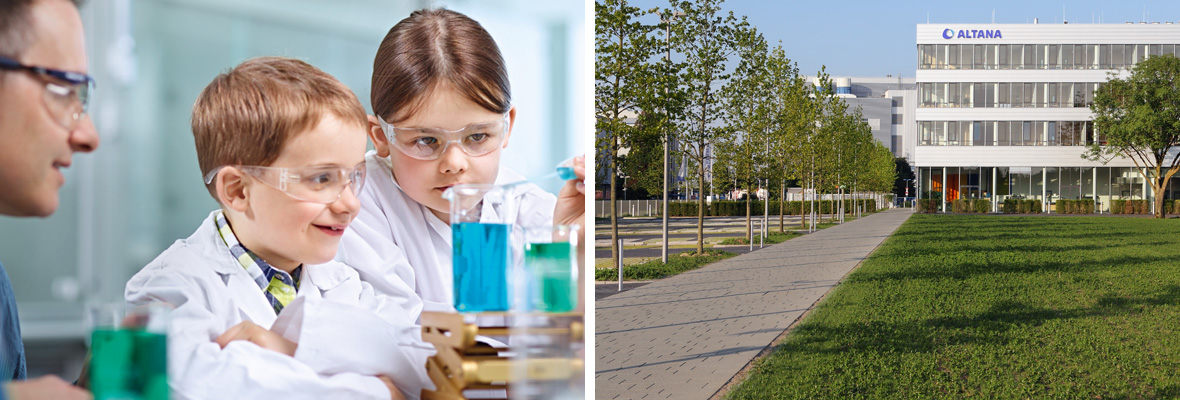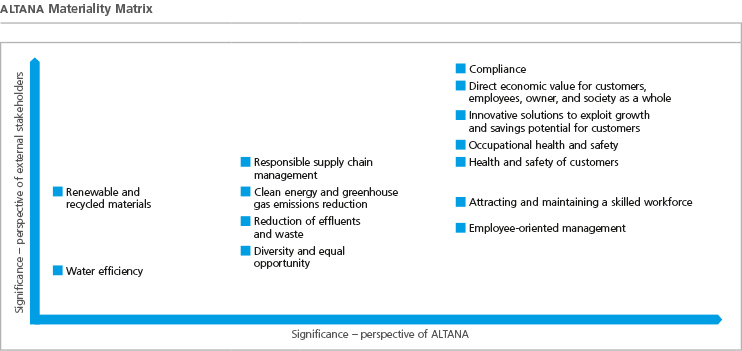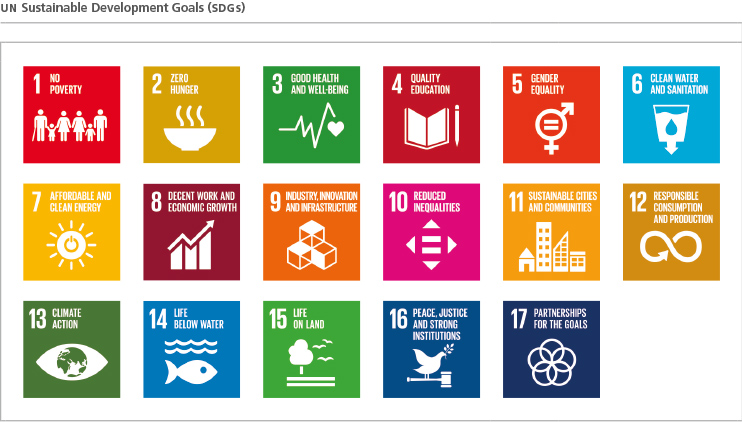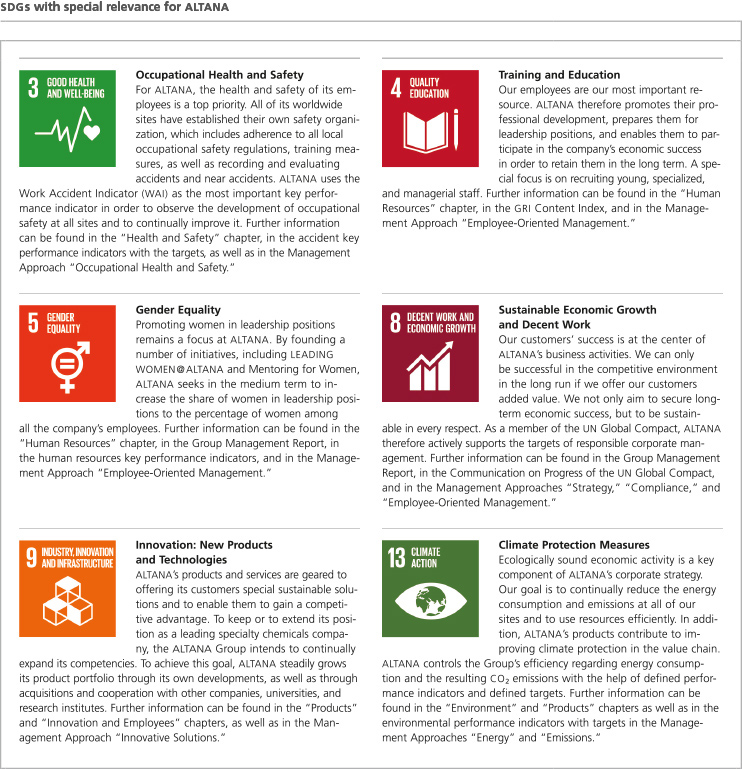Letter from the Management Board | About This Report | Sustainability Management | Corporate Governance | Corporate Bodies and Management | Report of the Supervisory Board | Creating Added Value at ALTANA | Group Management Report | Products | Safety and Health | Environment | Human Resources | Social Commitment | Consolidated Financial Statements (condensed version) | Multi-Year Overview | Global Compact: Communication on Progress (COP) | ALTANA worldwide | List of Full Ownership | Overview - About This Report | Contact
ALTANA’s Understanding of Sustainability
ALTANA consistently gears its activities to sustained profitable growth. But we can only achieve economic success in the long run if we also bear in mind ecological and social aspects and anchor them firmly in our company.
Our understanding of sustainability as a triad of economy, ecology, and corporate social responsibility is also reflected in ALTANA’s mission:
| We provide innovative solutions based on integrated chemical, formulation, and application expertise that make products of daily life better and more sustainable. Our solutions open up growth or savings potential for our customers and can change entire markets. As a result, we create value for our customers, employees, shareholder, and society as a whole. |
The View of Our Stakeholders
As a globally manufacturing specialty chemicals company, ALTANA has diverse stakeholders with whom the Group and its different companies maintain regular contact and exchange. The content and results of these dialogs are among the factors that inform ALTANA’s understanding of sustainability.
Among ALTANA’s most important stakeholders are its customers, employees, owner, suppliers, other business partners, authorities, associations, and nongovernmental organizations (NGOs), as well as our neighbors at the different sites.
In the year under review, the stakeholder analysis we performed in 2017 was examined and the key sustainability issues were still considered relevant for ALTANA. ALTANA’s Environment, Health & Safety (EH&S) and Corporate Communications departments developed with external support a materiality matrix with 13 criteria.
In the matrix, all topics relating to the GRI Standards, existing stakeholder analyses, ALTANA’s Keep Changing Agenda for the future, as well as selected best practices in the form of reports and studies were considered.
Throughout the process of developing the materiality matrix, topics were prioritized based on their relevance to stakeholder decisions and the consequences for the ALTANA Group (see the following graphic).
The stakeholders incorporated in the materiality matrix, which were identified based on high relevance, came from the areas of customers, suppliers, NGOs, foundations, politics, and institutions. Internally, EH&S, Corporate Communications, Strategy, Procurement, Research and Development, Finances and Controlling, Engineering, and Sales were incorporated. ALTANA will continue to update the materiality matrix on a regular basis.
Objective Evaluation of Sustainability
To be able to measure not only the company’s business performance but also its involvement in all areas of sustainability, alongside key performance indicators and certified management systems, ALTANA is using objective external evaluations increasingly. The assessments of the chemical industry rating company EcoVadis play a special role. In 2018, ELANTAS Beck India, ECKART America, and BYK Additives at the Widnes site were evaluated by EcoVadis. As a result, ALTANA continued its successful series of assessments.
EcoVadis, which analyzes environmental aspects, procurement policy, compliance, and working conditions of companies based on the international sustainability guideline ISO 26000, has become one of the world’s leading rating platforms for the chemical industry. More than 20,000 companies are now registered with it.
Organization of Sustainability
At ALTANA, the Group’s operating companies are responsible for implementing and anchoring sustainability. The individual companies are committed to continually reducing the environmental effects of the Group and to improving safety at the respective sites. Furthermore, the individual sites are required to introduce suitable management systems and have them certified.
Moreover, special, cross-divisional expert platforms exchange information on relevant EH&S topics (for example energy, sustainability performance, and contact with food) and present best-practice models.
Sustainable Development Goals
ALTANA has been a member of the UN Global Compact since 2010 and commits to integrating the ten principles into the company and to observing the general goals of the United Nations (see the Communication on Progress of Global Compact).
At the summit meeting on September 25, 2015, the 193 member states resolved the 2030 Agenda for Sustainable Development. 17 Sustainable Development Goals (SDGs) and a total of 169 targets were defined. The implementation phase began on January 1, 2016, and will end 15 years later in 2030.
In the meantime, many institutions and companies have joined the Sustainable Development Goals initiative and launched programs to reach the objectives. ALTANA supports this United Nations plan, and, in a first step, determined the goals that are most important for the ALTANA Group in a survey. For this purpose, managers and employees were invited to evaluate the importance of the 17 goals for ALTANA now and in the future. Based on this survey, the goals discussed on the next page were developed.
Descriptions, objectives, and results of the Sustainable Development Goals defined for ALTANA can be found in the chapters of the 2018 Corporate Report indicated and in the online document “Facts & Figures on Sustainability 2018.”



